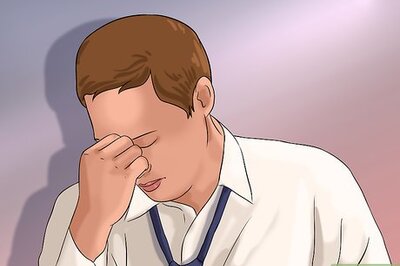
views
Islamabad: A prominent Pakistani lawyer has filed a petition in the top sharia court seeking that it strike down a new law that gives unprecedented protection to female victims of violence.
The Women's Protection Act, passed by Pakistan's largest province of Punjab last week, gives legal protection to women from domestic, psychological and sexual violence.
It also calls for the creation of a toll-free abuse reporting hot line, women's shelters and district-level panels to investigate reports of abuse and mandates the use of GPS bracelets to keep track of offenders.
Domestic abuse, economic discrimination and acid attacks made Pakistan the world's third most dangerous country in the world for women, a 2011 Thomson Reuters Foundation expert poll showed.
But since the law's passage in the Punjab assembly, many conservative clerics and religious leaders have denounced it as being in conflict with the Muslim holy book, the Koran, and the constitution.
The latest opponent is Supreme Court lawyer and professor of Islamic law, Mohammad Aslam Khaki, who petitioned the Federal Shariat Court to strike down the law for being un-Islamic and not providing adequate protection for men.
“No mechanism for filing a complaint against the wife for causing mental and psychological violence to the husband has been provided,” Khaki said in the petition.
“The impugned act will further create a gap and confrontation among families while Islam and the constitution provided for their integration.”
The petition goes on to say that victimising the husband through this law would lead people to avoid marriage altogether and turn to “unlawful alternates”.
It also says mandating the use of GPS bracelets to track offenders was “against the dignity of the man and hence against Islam and the constitution”.
On Thursday, the Council of Islamic Ideology, a powerful Pakistani religious body that advises the government on the compatibility of laws with Islam, declared the Women’s Protection Act un-Islamic.
Several clerics major religious leaders have called for the law to be repealed.




















Comments
0 comment